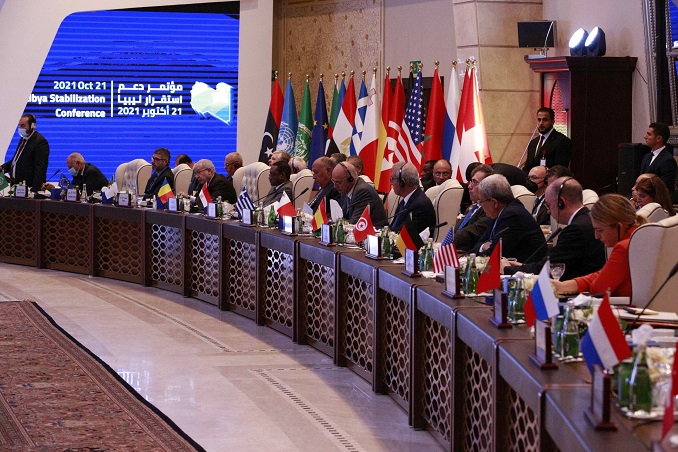Libya– Elections in Libya have been an issue of conjecture for many years. The officials of the country met with delegates from the United Nations as well as regional and western powers to find a way around to be more inclusive and efficient with the politics.
At the opening of International politics at Tripoli, Libyan Prime Minister Mohammed Dbeibeh mentioned that the conference underlines their continued support for implementing the elections, providing favorable circumstances for them and encouraging all Libyan sides to respect their results.
National elections will be held on December 24 and it puts peace plan by the UN at a crucial to cease hostilities, which have been continuing since a decade after the conflict was seen in the region. It majorly was fueled after the toppling of dictator Moammar Gadhafi in 2011.
Related Posts
Mohammed A’Sunoussy, a member of the National Tebu Assembly, added that after the independence of Libya, the government took steps to register and issue civil documentation to the Libyan population, and as a result, many Tebu remained without any documentation at this time. It added extra pressure on the economy to deal with unemployment.
Talking about ethnic minorities during Libyan elections, some of the racial groups were stripped of their Libyan citizenship after the International Criminal Court ruled the mineral-rich Aouzou strip in the south should be returned to Chad.
Despite various human rights groups claiming that some voters from ethnic minorities were disqualified from voting on the grounds of not being “Libyan citizens”. Although Tuareg activists campaigned against the electoral commission ahead of the 2019 municipal elections, this did not help them achieve any breakthrough.
At the international conference, foreign ministers of Tunisia, Egypt, and Saudi Arabia expressed support to holding the talks in Libya. They extended their support and hand of unity to altogether reject any foreign interference in the North African country now onwards.

